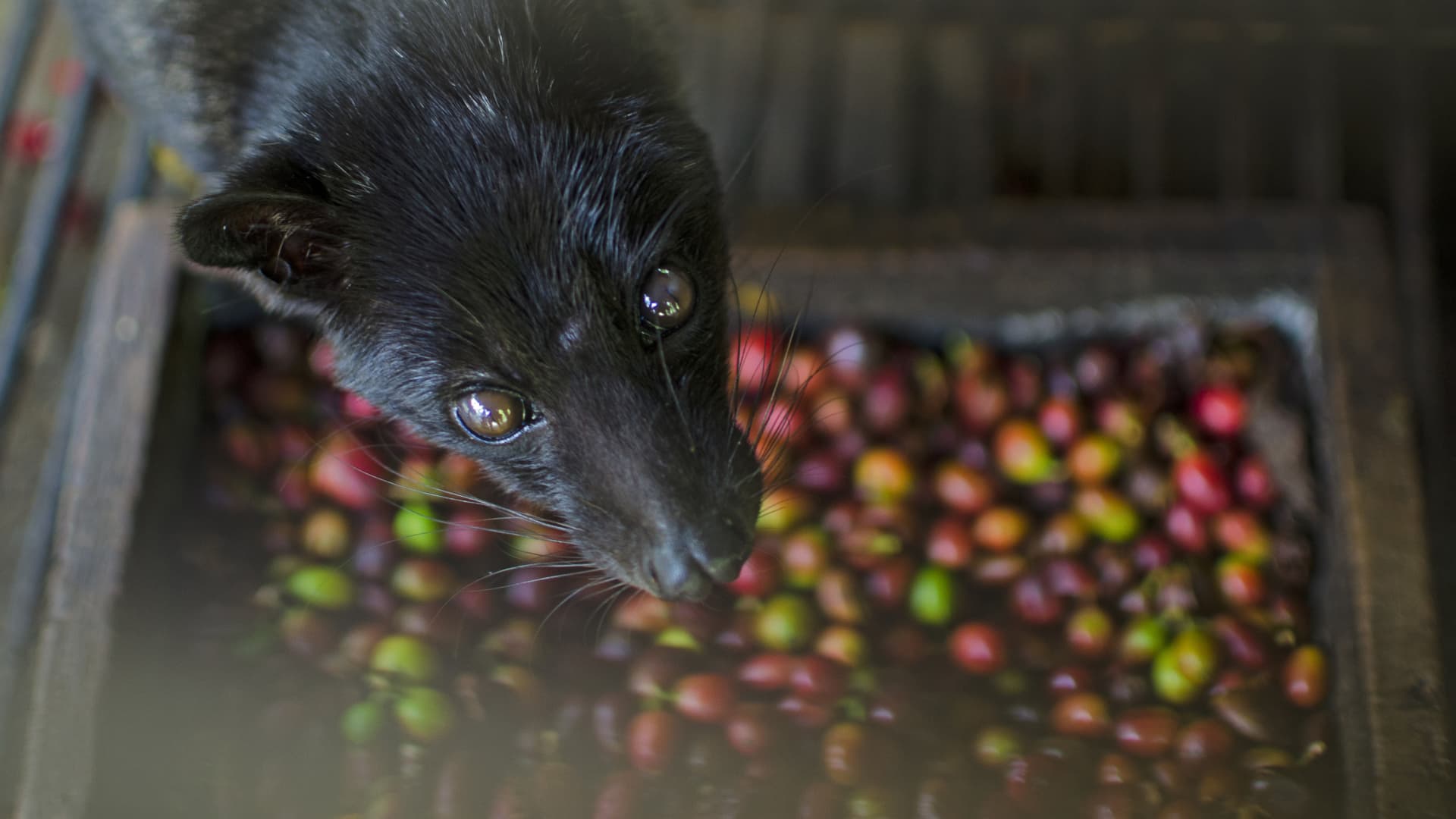If the idea of drinking civet cat coffee, which is made from feces from the Asian palm civet, is a turn-off, there may be yet another reason to rethink the drink.
This week, People for the Ethical Treatment of Animals (PETA) issued a warning aimed at tourists in Bali after an investigator showed undercover footage of how the civet cat excrement, containing partially digested coffee beans, is obtained.
The video showed the animals confined to cages encrusted with feces, dirt and decomposing coffee berries, many with open wounds, according to PETA. The footage was obtained through undercover work conducted by PETA investigators at a farm in Catur, Bali, said the organization’s Senior Vice President Jason Baker.
“Tour guides in Bali often mislead tourists by claiming that kopi luwak is obtained from the feces of wild civet cats,” he said, referencing the coffee’s name in Bahasa Indonesia. “However, the reality is that most of this coffee is the product of keeping these animals captive in cruel conditions on farms.”
The finding is not the first of its kind, according to PETA. A previous investigation in 2022 also found Asian palm civets held in captivity, during which they were fed a steady diet of coffee berries, according to the organization. Coffee berries are the fruit of the coffee plant. Normally coffee is made from the seeds, or beans, of this fruit.
In the wild, Asian palm civets, which are not members of the cat family, eat a variety of fruit, such as mango, chiku and rambutan, as well as insects and small mammals.
Baker highlights that the issue extends beyond Bali, persisting throughout Indonesia and other countries that serve the coffee.
“It is impossible to generate the quantities needed for export without caging civet cats,” he said. “Despite global attention and condemnation, the inhumane treatment of these living, feeling beings persists in the industry.”
There’s much to enjoy about coffee in Indonesia, Baker said. “But the confinement, suffering, and sadness endured by civet cats for kopi luwak aren’t among them. Tourists be warned: stay away from civet coffee.”
Why people drink it
Ironically, the shock value of the coffee’s source is why many tourists choose to try it.
Plus, “there’s a misconception that civet coffee … has a unique taste, and this is often perpetuated by businesses to attract consumers and justify higher prices for their products,” Baker said.
The cost of the coffee also attracts attention. Prices can range from $45 to $600 per pound, said Baker, which is why it’s been called one of the most expensive coffees in the world.
The animals, which are nocturnal mammals native to South and Southeast Asia are under threat in Indonesia — increased production of kopi luwak has boosted the illegal wildlife trade, according to the non-profit organization Wildlife Alliance.
